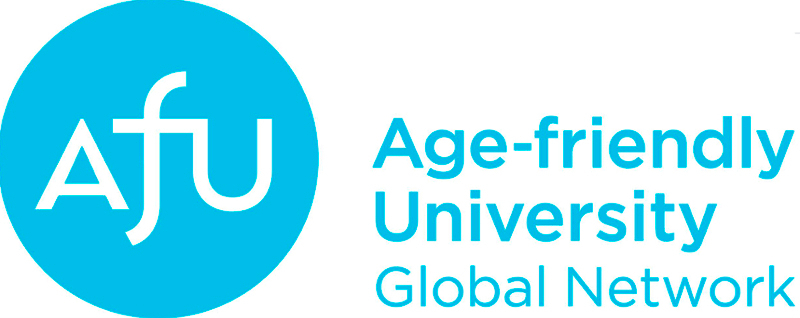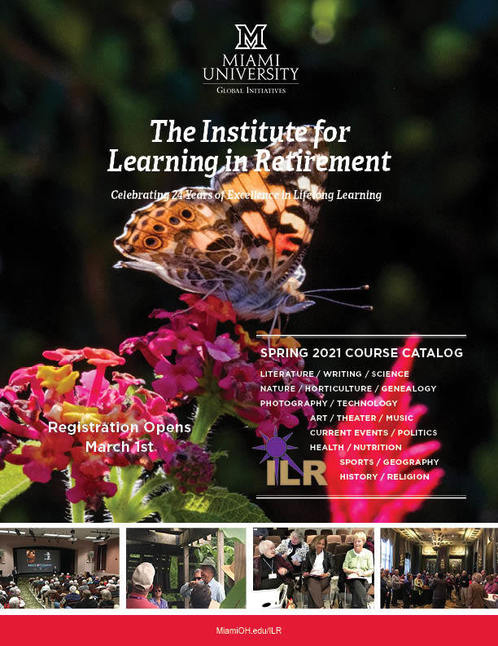Miami recognized as Age-Friendly University
Joins a global network of 70 universities committed to age-friendly principles
Miami recognized as Age-Friendly University
By Jessica Stark Rivinius, university news and communications
 Miami University has been accepted into the Age-Friendly University (AFU) global network, comprising more than 70 universities that have endorsed the 10 Age-Friendly University Principles and committed themselves to becoming more age-friendly in their programs and policies. Miami is only the second university in Ohio to receive such a designation.
Miami University has been accepted into the Age-Friendly University (AFU) global network, comprising more than 70 universities that have endorsed the 10 Age-Friendly University Principles and committed themselves to becoming more age-friendly in their programs and policies. Miami is only the second university in Ohio to receive such a designation.
By joining the network, Miami gains access to exclusive opportunities to learn about emerging age-friendly efforts and it will contribute to an educational movement of social, personal, and economic benefit to students of all ages.
"This designation is a very important message about Miami University's commitment to age inclusiveness,” said Suzanne Kunkel, executive director of the Scripps Gerontology Center.
“Miami established one of the first graduate programs in gerontology in the world, and is home to one of the nation's most vibrant gerontology research centers. The AFU designation recognizes those accomplishments, and opens the door to new initiatives to be more intentionally welcoming and inclusive to people of all ages,” she said.
Home to the prominent Scripps Gerontology Center, Miami has a long history of positive contributions to research, education and service in aging, and has recently set a higher standard as an age-inclusive organization by committing itself to address unintended ageism and increase its efforts to serve learners of all ages.
Miami has woven the 10 principles of the network seamlessly into its community. For instance, it incorporates older adults in core activities of the university, from emeritus faculty serving on thesis and dissertation committees to offering more than 70 courses and events each semester through the Institute for Learning in Retirement. Each year, the Miami Alumni Association hosts Grandparents College, an event that allows Miami alumni and their grandchildren ages 8-12 to come together for a three-day educational experience on Miami’s Oxford campus. Miami has also been a partner in the Age Friendly Oxford initiative, which works to create a livable community for people of all ages.
Opening Minds Through Art (OMA) is one of the more unique programs at Miami, said Elizabeth "Like" Lokon, OMA's founder. “Miami students support older adults living with dementia to express their creativity. Not only does this promote intergenerational connections, but it also creates beautiful artwork,” she said. This intergenerational program is now being used in more than 200 facilities across the U.S. and Canada.
 Miami Online, formerly known as eLearning Miami, is actively widening access to online educational opportunities for older adults and other non-traditional students. Last year, Miami’s Institute for Learning in Retirement moved its programming online in order to meet the needs of its students during the global pandemic. Due to its popularity and success, the online mode of delivery will continue to be an option even after in-classroom programming resumes.
Miami Online, formerly known as eLearning Miami, is actively widening access to online educational opportunities for older adults and other non-traditional students. Last year, Miami’s Institute for Learning in Retirement moved its programming online in order to meet the needs of its students during the global pandemic. Due to its popularity and success, the online mode of delivery will continue to be an option even after in-classroom programming resumes.
Further informing the university’s research and teaching agenda, Scripps Gerontology Center conducts a wide range of aging-related research in areas that include demography, long-term services and supports, caregiving, program evaluation, the aging workforce, and arts and dementia programming.
“Our research is centered on providing good, useful information for decision makers that can improve the lives of older adults and their families,” Jane Straker, director of research at Scripps, said.
Through undergraduate courses and academic programs in gerontology, Miami works to educate its student body about aging and the complexity and richness it brings. Undergraduate courses such as “Big ideas in Aging” and “Global Aging” fulfill liberal education requirements and introduce students to aspects of individual and societal aging. In addition, Scripps Gerontology Center offers lunchtime presentations and public lectures on aging-related topics for the entire university community.
